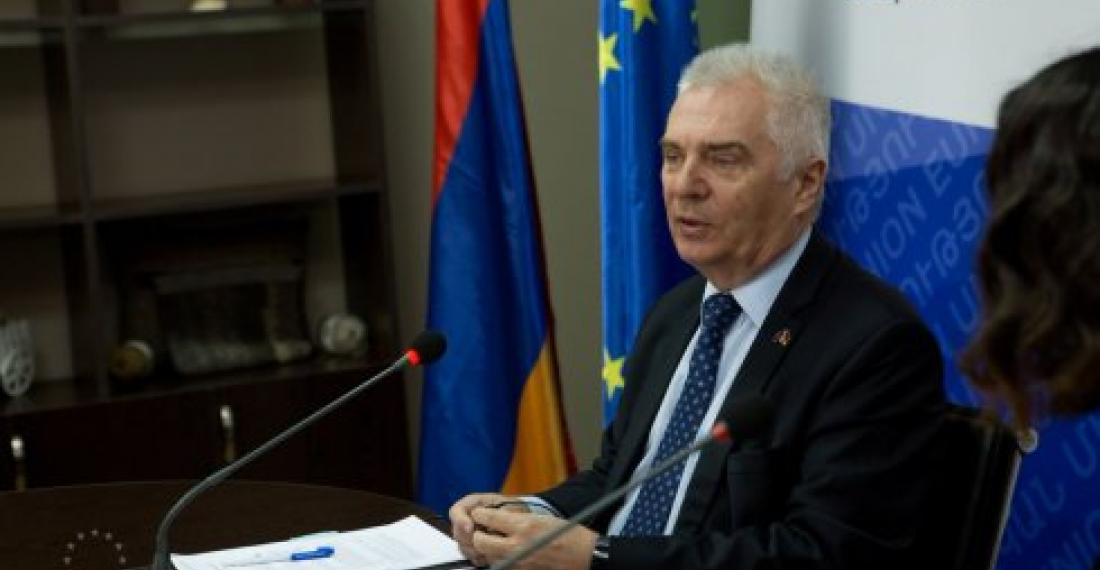The European Union has expressed support for comprehensive judicial reforms announced on Monday by Armenian prime minister Nikol Pashinyan.
Speaking to the media in Yerevan Ambassador Piotr Świtalski, Head of the Delegation of the European Union to Armenia, said the EU saw the prime minister's statement as a firm commitment to carry out reforms in Armenia's judicial system.
Świtalski stressed that the EU believes the reforms in Armenia's justice sector are of vital importance for the future of the country, and its relations with the EU. The Ambassador said that one main reason why reforms were needed was that the public had no trust in the judicial system and this was borne out by a study conducted last year by the EU
Ambassador Switalski highlighted the need for reforms to restore public trust, and added that these reforms should be carried out in line with the Constitution of Armenia and honouring the country's international commitments.
Asked why the people in Armenia do not trust the courts, the Head of the EU delegation said the two main reasons were corruption and the political dependence and manipulations of the courts.
source: commonspace.eu with agencies
photo: Head of the EU Delegation to Armenia, Piotr Switalski (archive picture)







